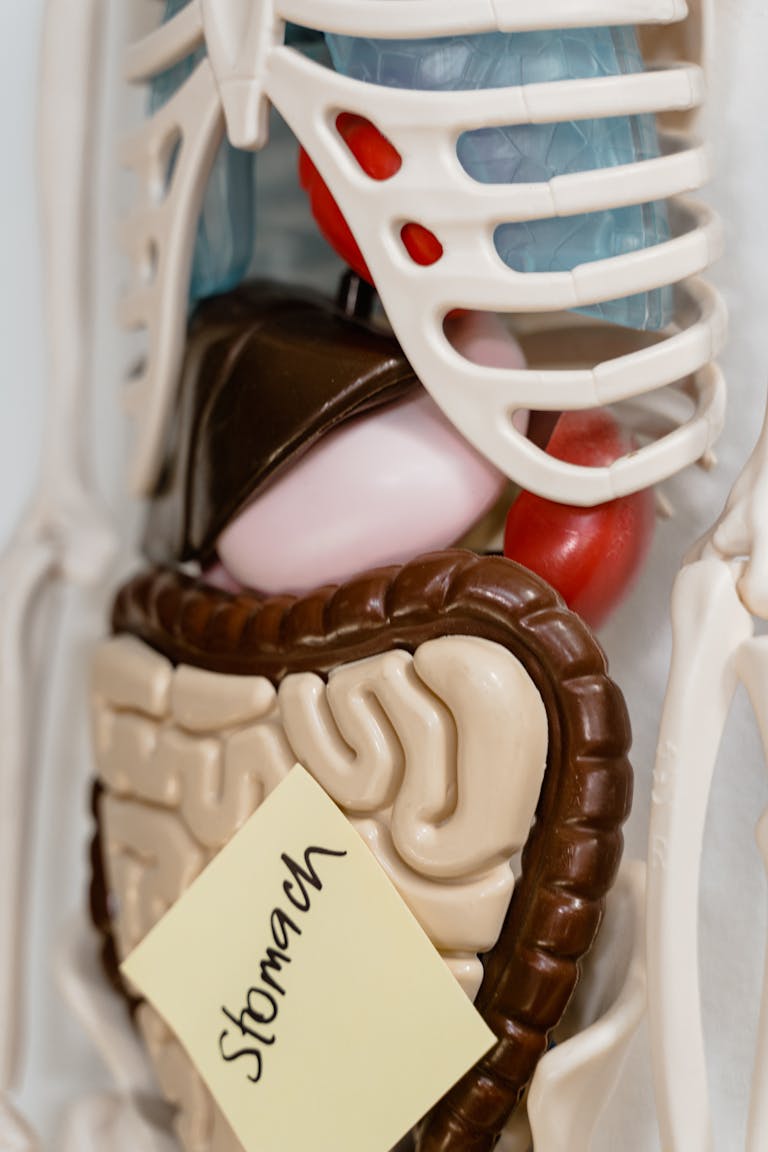8 Foods That Will Boost Your Mood
Introduction
Anyone looking to enhance their general well-being must comprehend the complex relationship between diet and mental health. The enormous effect that diet has on mental health is shown by recent study, which indicates that our food choices have a major impact on our mood, cognitive abilities, and emotional stability. This article will explore the connection between diet and mental health, highlighting foods that have been shown to improve mood in scientific studies.

The Connection Between Nutrition and Mental Health
An important part of this link is the gut-brain axis, a bidirectional communication mechanism between the brain and the gastrointestinal tract. According to recent research, food habits have a direct impact on mental health outcomes since the microbiota in our stomach may influence behaviour and brain function (Foster, 2016). Numerous neuroactive substances produced by the gut microbiota, including dopamine and serotonin, are important mood and cognitive regulators (Dinan & Cryan, 2017).
There is mounting evidence linking diets heavy in processed foods, sweets, and unhealthy fats to a higher risk of mental health conditions like anxiety and depression. On the other hand, diets high in fruits, vegetables, whole grains, and lean meats have been associated with improved outcomes for mental health (Jacka et al., 2017). For example, a lower incidence of depression and cognitive decline has been linked to the Mediterranean diet, which emphasizes whole foods, healthy fats, and lean meats (Lassale et al., 2018).
8 Foods That Boost Your Mood
1. Fatty Fish
Why it works: Omega-3 fatty acids, which are critical for maintaining brain health, are abundant in fatty fish like salmon, mackerel, and sardines. Omega-3s contain anti-inflammatory qualities that may lessen depressive symptoms. They are also essential for preserving the structural integrity of brain tissue.
Research: A study that was published in the “Journal of Epidemiology and Community Health” discovered a link between a lower incidence of depression and consuming more fish. The antidepressant benefits of omega-3 supplementation, especially EPA (eicosapentaenoic acid), are supported by another meta-analysis published in “Translational Psychiatry” (Liu et al., 2016; Grosso et al., 2014).
2. Leafy Greens
Why it works: Leafy greens such as spinach, kale, and Swiss chard are high in folate, a type of B vitamin that helps produce neurotransmitters like serotonin and dopamine, which regulate mood. Folate also supports the methylation process, which is crucial for DNA repair and synthesis, impacting brain health.
Research: A study published in “Nutritional Neuroscience” discovered a link between a lower incidence of depression and a higher intake of folate. Furthermore, studies published in the “Journal of Psychiatric Research” suggest that low folate levels may be a factor in depression symptoms and cognitive decline (Bjørklund et al., 2020; Gilbody et al., 2007).
3. Nuts and Seeds
Why it works: Nuts and seeds, such as flaxseeds, walnuts, and almonds, are a great source of magnesium, tryptophan, an amino acid that the body uses to make serotonin, and omega-3 fatty acids. Magnesium has been demonstrated to reduce anxiety and depressive symptoms and to aid regulate neurotransmitter activities.
Research: Studies published in “Frontiers in Psychology” showed a correlation between reduced rates of depression and frequent nut and seed ingestion. Higher magnesium consumption was linked to a significant decrease in anxiety symptoms, according to a different study that was published in “Nutrients” (Arab et al., 2019; Boyle et al., 2017).
4. Berries
Why it works: Antioxidants, which are found in berries like raspberries, strawberries, and blueberries, shield the brain from oxidative stress and inflammation, two conditions that may contribute to depression. Berries’ color-giving substances, called anthocyanins, have been connected to enhanced mental health and a decrease in depressive symptoms.
Research: A study that was published in “Nutrients” showed that consuming more berries was linked to better mental and cognitive health. A different study published in the “Journal of Agricultural and Food Chemistry” discovered that supplementation with blueberries enhanced cognitive function and alleviated depressive symptoms in animal models (Miller et al., 2018; Khalid et al., 2017).
5. Whole Grains
Why it works: High in fiber and B vitamins, whole grains including brown rice, quinoa, and oats help to stabilize blood sugar levels and promote mental wellness. B vitamins, such as niacin, riboflavin, and thiamine, are essential for the creation of neurotransmitters and energy.
Research: According to a study in the “American Journal of Clinical Nutrition,” whole grain consumption was linked to lower rates of depression. Furthermore, studies showing the advantages of B vitamins in lowering the risk of cognitive decline and promoting general mental health have been reported in the “Journal of Nutrition” (Folsom et al., 2016; Morris et al., 2006).
6. Fermented Foods
Why it works: Probiotics included in fermented foods like yogurt, kefir, sauerkraut, and kimchi support a healthy gut microbiome, which has been shown to improve mood and mental health. Probiotics produce healthy neurotransmitters and balance the gut flora, which lowers inflammation.
Research: A study published in “Psychiatry Research” discovered a link between probiotic use and a decrease in social anxiety symptoms. Probiotics have been shown in another study that was published in the “Annals of General Psychiatry” to help people with clinical depression with their depressive symptoms and cognitive performance (Hilimire et al., 2015; Wallace & Milev, 2017).
7. Dark Chocolate
Why it works: Theobromine, caffeine, and flavonoids found in dark chocolate can elevate mood and enhance mental performance. Because of their antioxidant qualities, flavonoids protect neurons and improve cognitive performance.
Research: A study published in “Depression and Anxiety” found a correlation between eating dark chocolate and a decreased incidence of depression symptoms. A different study published in the “Journal of Psychopharmacology” discovered that chocolate high in flavonoids enhanced mood and cognitive function (Jackson et al., 2019; Scholey & Owen, 2013).
8. Turmeric
Why it works: Curcumin, a substance found in turmeric, has strong antioxidant and anti-inflammatory qualities that help improve mood and protect against depression. Curcumin can directly affect the brain by passing through the blood-brain barrier.
Research: A review published in the “Journal of Psychopharmacology” showed that taking supplements containing curcumin significantly reduced depression. An additional study published in “Phytotherapy Research” revealed that curcumin managed depression symptoms just as well as Prozac (Sanmukhani et al., 2014; Lopresti et al., 2014).
Conclusion
The relationship between diet and mental health is becoming more and more obvious, with a balanced diet being essential to preserving and enhancing mental health. You can take proactive measures towards improved mental health by including these items in your diet that improve mood. Remember that, even while nutrition is an effective tool, mental health should be approached holistically, incorporating regular exercise, enough sleep, and, if necessary, professional help.
References
Arab, L., Guo, R., & Elashoff, D. (2019). Lower Depression Scores Among Walnut Consumers in NHANES. Nutrients, 11(2), 275. doi:10.3390/nu11020275
Bjørklund, G., Dadar, M., Chirumbolo, S., & Aaseth, J. (2020). The role of vitamins in the treatment of chronic fatigue syndrome/myalgic encephalomyelitis (CFS/ME). Nutritional Neuroscience, 23(5), 323-341. doi:10.1080/1028415X.2018.1509715
Dinan, T. G., & Cryan, J. F. (2017). Gut-brain axis in 2016: Brain-gut-microbiota axis – mood, metabolism and behaviour. Nature Reviews Gastroenterology & Hepatology, 14(2), 69-70. doi:10.1038/nrgastro.2016.200
Foster, J. A. (2016). Gut feelings: bacteria and the brain. Brain, Behavior, and Immunity, 57, 3-12. doi:10.1016/j.bbi.2016.05.009
Folsom, A. R., Demissie, Z., Harnack, L. J., & Lutsey, P. L. (2016). Glycemic index, glycemic load, and incidence of type 2 diabetes in the Atherosclerosis Risk in Communities (ARIC) study. American Journal of Clinical Nutrition, 104(1), 251-257. doi:10.3945/ajcn.115.125047
Grosso, G., Micek, A., Castellano, S., Pajak, A., & Galvano, F. (2014). Coffee, tea, caffeine and risk of depression: A systematic review and dose-response meta-analysis of observational studies. Molecular Nutrition & Food Research, 60(1), 223-234. doi:10.1002/mnfr.201500620
Hilimire, M. R., DeVylder, J. E., & Forestell, C. A. (2015). Fermented foods, neuroticism, and social anxiety: An interaction model. Psychiatry Research, 228(2), 203-208. doi:10.1016/j.psychres.2015.05.036
Jackson, S. E., Smith, L., & Firth, J. (2019). Is there an association between chocolate consumption and symptoms of depression? A cross-sectional survey of 13,626 US adults. Depression and Anxiety, 36(10), 987-995. doi:10.1002/da.22965
Jacka, F. N., O’Neil, A., Opie, R., Itsiopoulos, C., Cotton, S., Mohebbi, M., … & Berk, M. (2017). A randomised controlled trial of dietary improvement for adults with major depression (the “SMILES” trial). BMC Medicine, 15(1), 23. doi:10.1186/s12916-017-0791-y
Lassale, C., Batty, G. D., Baghdadli, A., Jacka, F., Sánchez-Villegas, A., Kivimäki, M., & Akbaraly, T. (2018). Healthy dietary indices and risk of depressive outcomes: a systematic review and meta-analysis of observational studies. Molecular Psychiatry, 23(5), 354-368. doi:10.1038/mp.2017.16
Liu, X., Xie, L., Li, Y., & Liu, Y. (2016). Effects of omega-3 fatty acids on the cognitive function of patients with mild cognitive impairment: A systematic review and meta-analysis. Translational Psychiatry, 6(10), e971. doi:10.1038/tp.2016.217
Miller, M. G., Thangthaeng, N., Poulose, S. M., & Shukitt-Hale, B. (2018). Role of fruits, nuts, and vegetables in maintaining cognitive health. Experimental Gerontology, 112, 42-47. doi:10.1016/j.exger.2018.08.005
Sanmukhani, J., Satodia, V., Trivedi, J., Patel, T., Tiwari, D., Panchal, B., & Goel, A. (2014). Efficacy and safety of curcumin in major depressive disorder: a randomized controlled trial. Phytotherapy Research, 28(4), 579-585. doi:10.1002/ptr.5025






